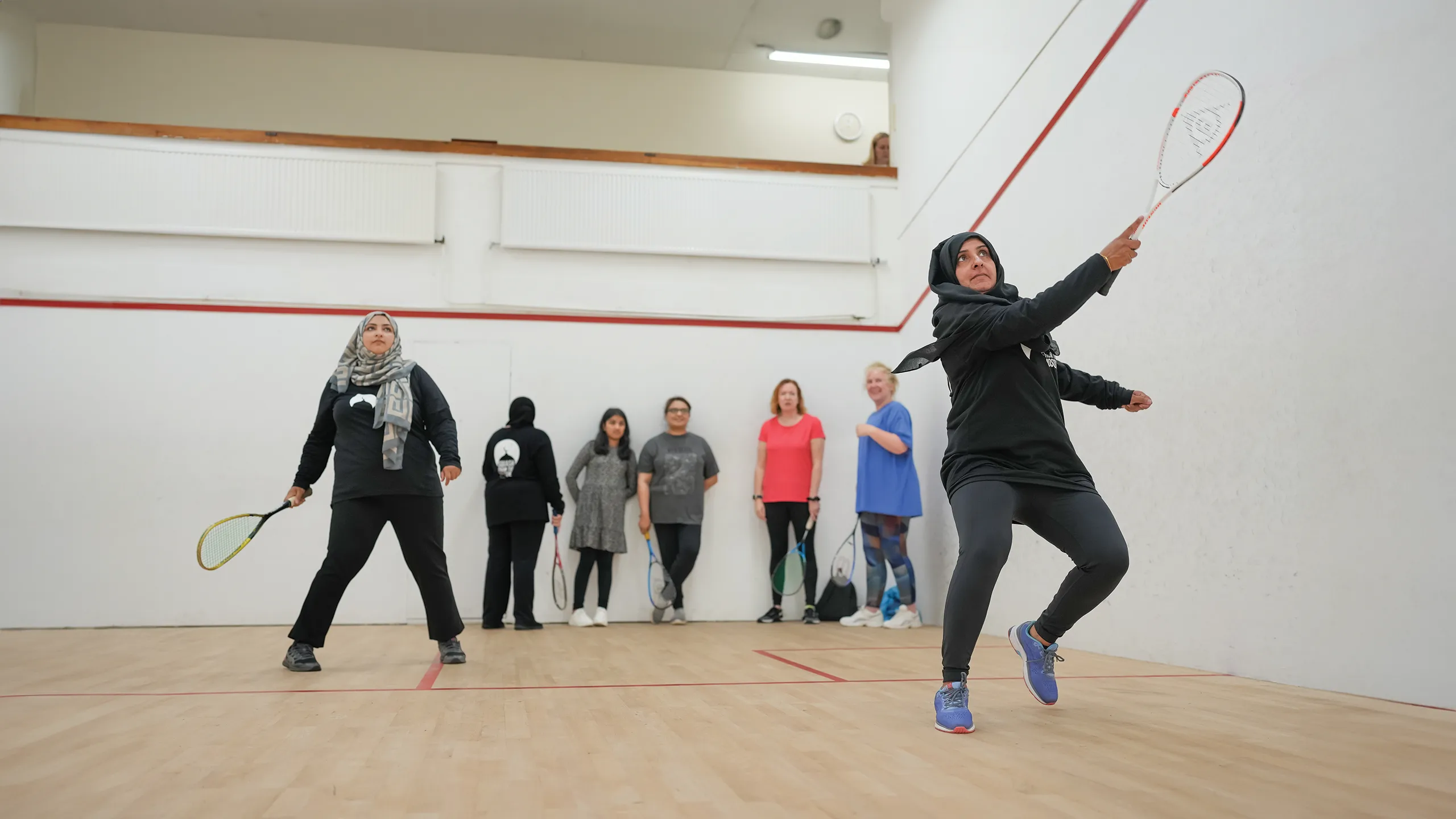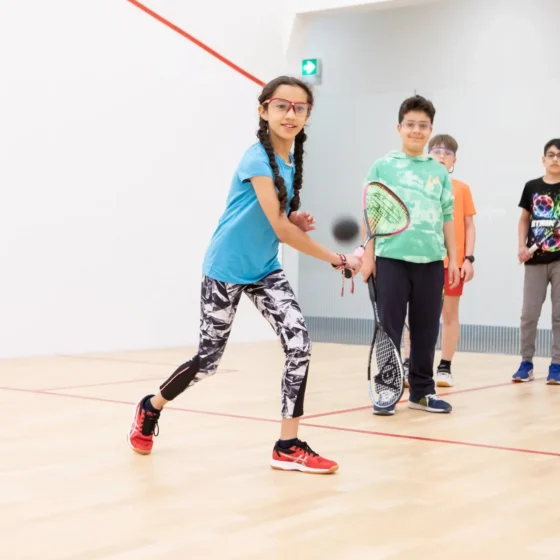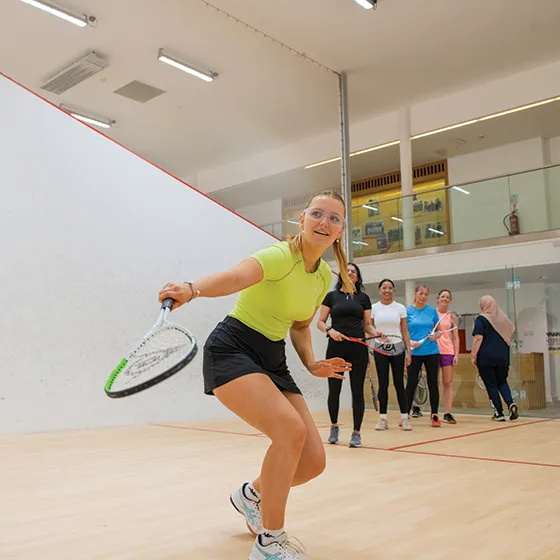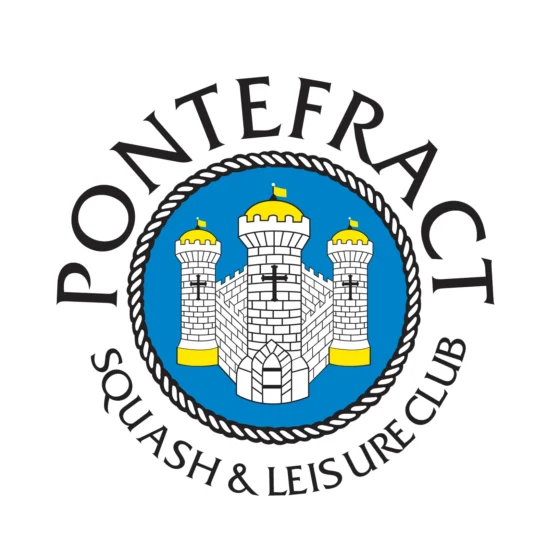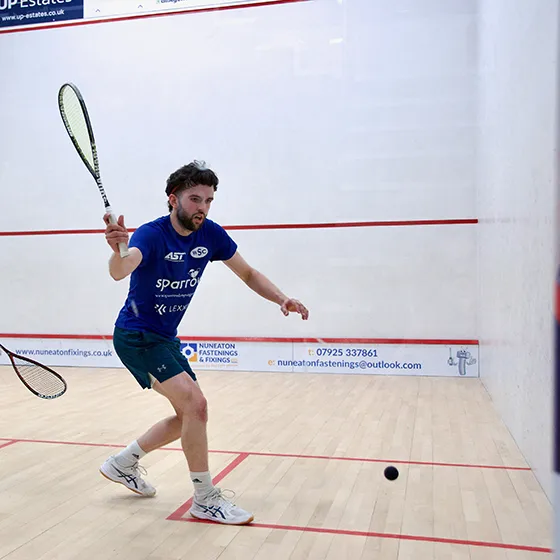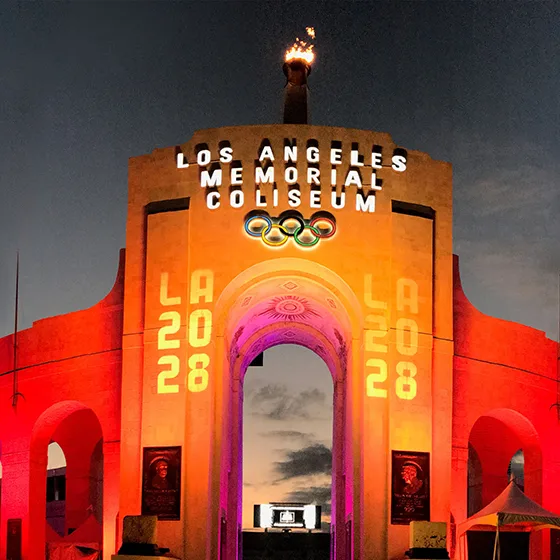A squash initiative that began with a few bounce-back nets in a mosque car park in Halifax has blossomed into a model of grassroots inclusion, inspiring communities and clubs nationwide
Squash from the Mosque is a culturally appropriate programme designed to break down barriers to participation, change mindsets, and create culture shifts within squash clubs. By taking the game into the heart of communities, it connects with new audiences and inspires more people to get active, while offering training, membership and a healthy hobby for life.
The idea took root when Aron Harper-Robinson from Calder Community Squash approached the Jamia Mosque Madni in Halifax. After initial conversations with Hassan, an Islamic teacher at the mosque, Aron was invited for a tour and to discuss how sessions might work. It was agreed to start with taster sessions in the car park, using portable nets to introduce the basics.
“After a couple of months trying to get things off the ground, a date was set and we were teaching kids how to play in the car park of the mosque,” recalls Aron in the England Squash Squash from the Mosque starter guide. The enthusiasm was immediate, and soon the activity moved to nearby Old Crossleyans Squash Club. A 12-week pilot funded by England Squash saw 15 kids arriving every week before additional local council funding extended the project by six months, helping to forge strong links and trust within the Muslim community.
Two years on and the programme is thriving with dedicated girls-only and women’s sessions now in place. Many attendees have gone on to become club members, encouraging friends and family to join and book courts outside the organised sessions.
Many families will seek girls-only sessions, and girls will be empowered more with a female coach
The importance of a scheme like this is clear when set against participation trends. Research shows people who state they have no religion are more likely to be active than those who belong to a faith group. In addition, two in five people from ethnically diverse communities feel they have fewer opportunities to take part in sport and physical activity than someone from a white background. Squash from the Mosque offers Muslim communities a welcoming pathway into the sport, aiming to make the squash community more reflective of society.
Hassan’s guidance has been integral to the programme’s success. In the starter guide, he emphasises the importance of cultural understanding: “Islam teaches inclusivity and all young people are encouraged to enjoy their youth and pursue praiseworthy professions and hobbies. Young women ought to have the same opportunities, and this will only be enhanced by having female coaches for girls-only sessions. Many families will seek girls-only sessions, and girls will be empowered more with a female coach.” Girls-only sessions with female coaches, celebrating role models such as Jahangir Khan, Ali Farag, and Nour El Sherbini, and allowing time for prayer are also key factors.
For clubs considering launching similar initiatives, Aron advises finding a mosque within three to five miles of the squash venue and building personal connections early. “A face-to-face meeting is integral to the success of any programme as it will help to build trust from within the community,” he says. Taking squash to the mosque first can help ease nerves before participants visit the club.
The benefits for clubs are clear: more diverse and reflective membership, increased participation, stronger community ties, and potential funding opportunities. As England Squash aims to help other clubs replicate the Halifax success, the hope is to create a lasting cultural shift in the sport.
As Hassan puts it: “When we launched Squash from the Mosque in Halifax, we started with a handful of outdoor nets, squash racquets and balls and around 30 super-keen young lads. We set up in the mosque car park and the journey’s not stopped since. We’re only just starting.”
Find out more about Squash from the Mosque Programme`










